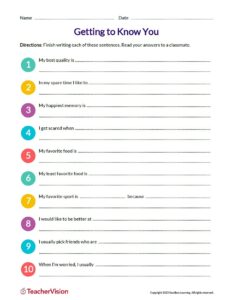In the evolving educational landscape, social media’s impact is undeniable, creating the need for schools to navigate this digital realm responsibly. A comprehensive social media policy is essential to protect students, educators, and the reputation of the institution as a whole. This template offers a framework for schools to establish clear guidelines and expectations for social media usage.
An effective social media policy should be a collaborative effort, involving input from school administration, educators, students, and parents. Open dialogue and transparent communication are crucial to ensure a policy that aligns with the school’s values and goals. Schools should regularly review and update the policy to reflect evolving technologies and the changing social media landscape.
Roles and Responsibilities
To ensure successful implementation, it is crucial to define the roles and responsibilities of students, educators, administrators, and parents. This includes outlining the expectations for appropriate online behavior, the proper use of school-related social media accounts, and the consequences of breaching the policy. Educators, as role models, have the responsibility to maintain professionalism and ethical standards while using social media.
In addition to educators, the policy should address the roles and responsibilities of students, clearly stating expectations for appropriate online behavior, including respecting others’ privacy, avoiding cyberbullying and hate speech, and maintaining a positive online presence that reflects the school’s values. Students should also be made aware of the consequences of violating the policy, such as suspension or even expulsion.
Privacy and Data Protection
Protecting the privacy and data of students and educators is paramount. The policy should include measures to ensure personal information, such as student records, is handled responsibly and confidentially. It is important to limit the collection and use of personal data, obtain consent before using photos or videos of individuals, and provide clear procedures for reporting and responding to privacy breaches.
The policy should also address the issue of data protection and ensure that the school complies with relevant regulations and laws. This includes measures to safeguard personal data from unauthorized access, use, or disclosure, as well as procedures for securely storing and disposing of data. By implementing robust data protection measures, schools can protect the privacy of their community members and maintain trust.
Conclusion
A well-crafted social media policy template for schools serves as a guide to navigate the complex world of social media while maintaining a safe and positive learning environment. By establishing clear guidelines, schools can protect students and staff, promote responsible online behavior, and ensure that social media is used as a tool for educational enhancement rather than a source of disruption or harm. Regular review and updates are essential to keep pace with the ever-changing digital landscape and ensure the policy remains effective.
With a comprehensive social media policy in place, schools can harness the power of social media for educational purposes, fostering collaboration, knowledge sharing, and engagement among students, educators, and the broader community. This template provides a framework for schools to develop their own tailored policies, empowering them to create a positive and safe online environment for all stakeholders.
FAQ
Why is a social media policy important for schools?
A social media policy provides clear guidelines and expectations for social media usage within the school community, protecting students, educators, and the reputation of the institution while promoting responsible online behavior.
Who should be involved in developing the social media policy?
The development of the social media policy should involve a collaborative effort from school administration, educators, students, and parents to ensure a policy that aligns with the school’s values, goals, and the needs of its community.
How often should the social media policy be reviewed and updated?
The social media policy should be reviewed and updated regularly to keep pace with evolving technologies, changing social media trends, and any updates to relevant laws or regulations.
